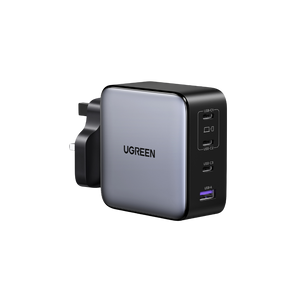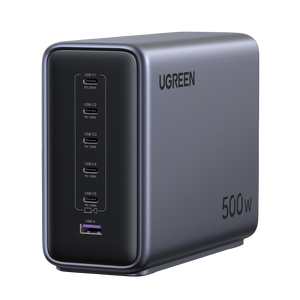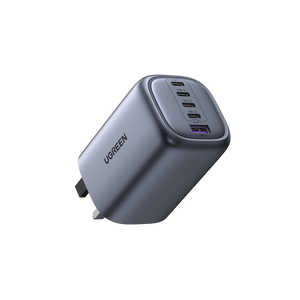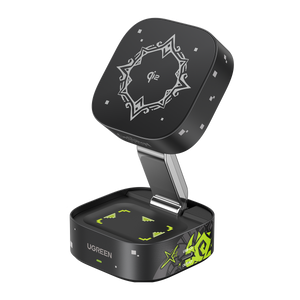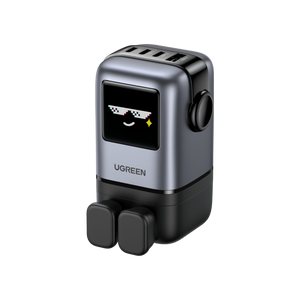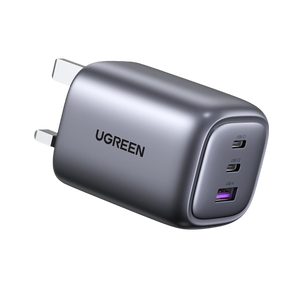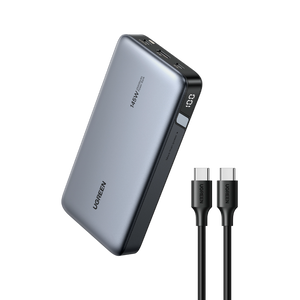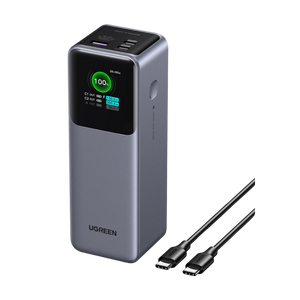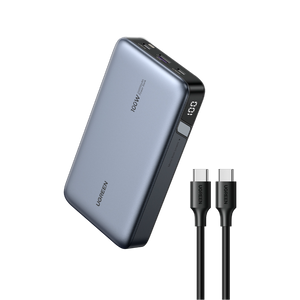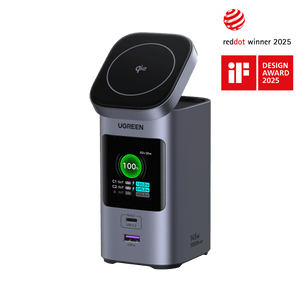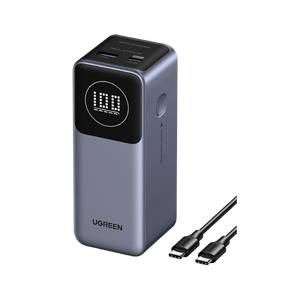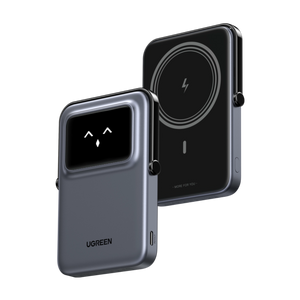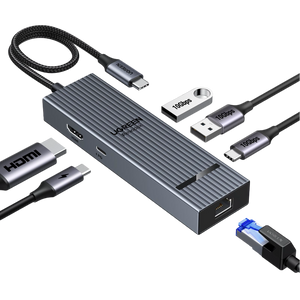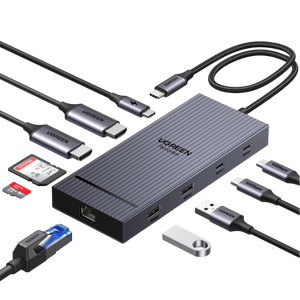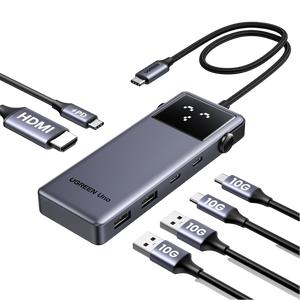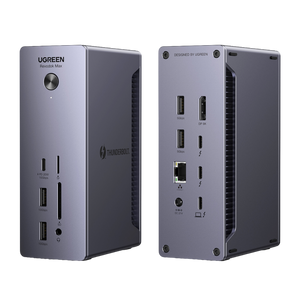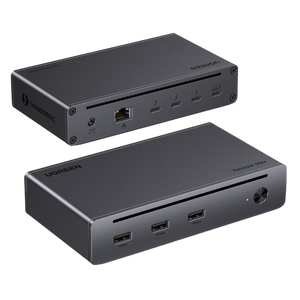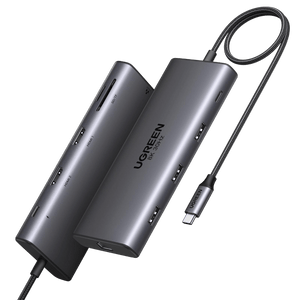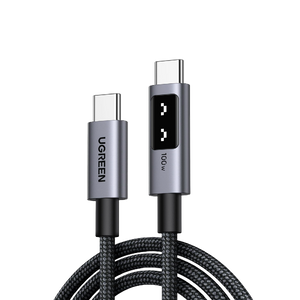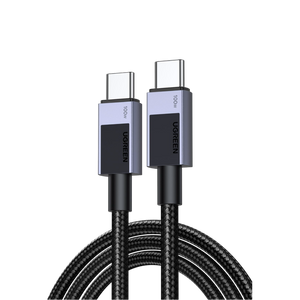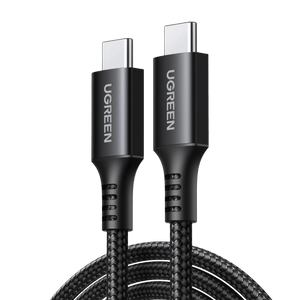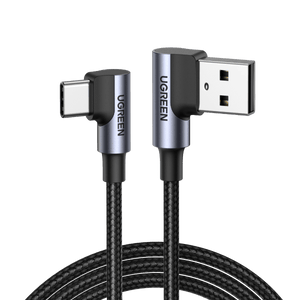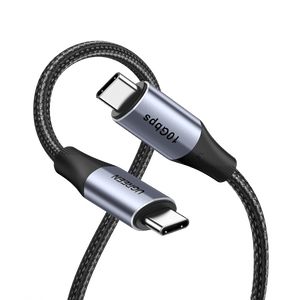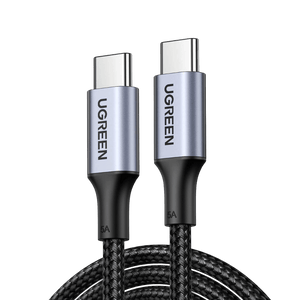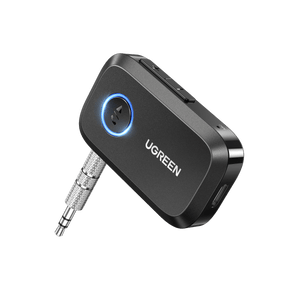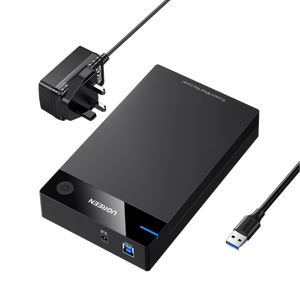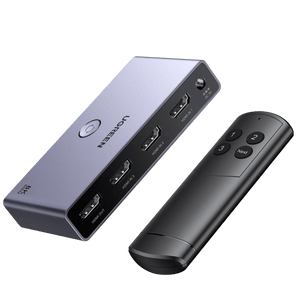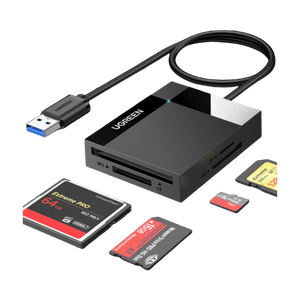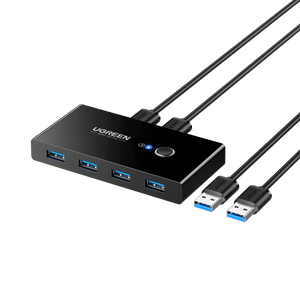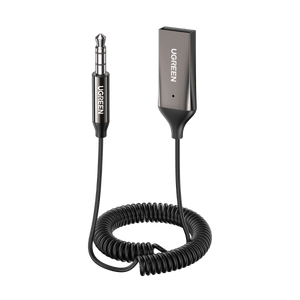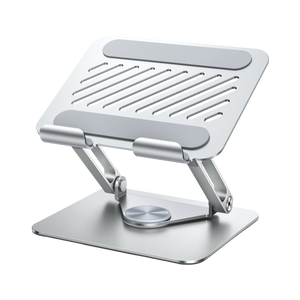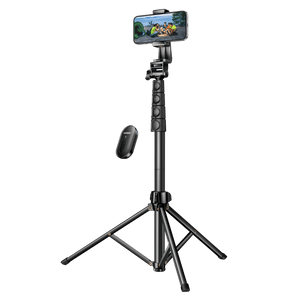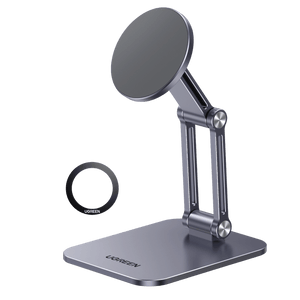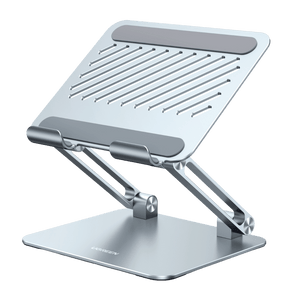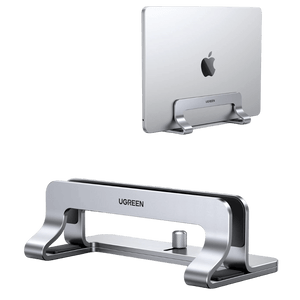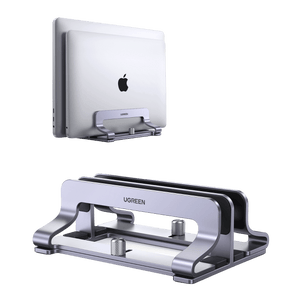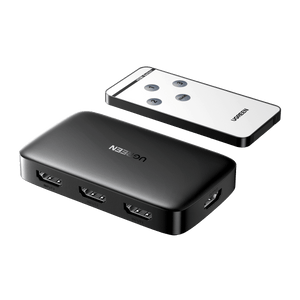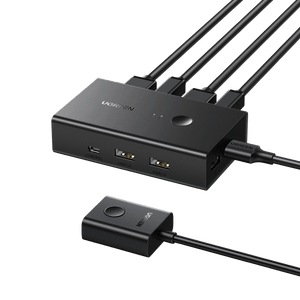Power Smarter. Charge Faster.
USB-C Chargers (Type-C Chargers)
UGREEN MagFlow 2-in-1 Wireless Charger (Qi2 15W, MagSafe Compatible, Foldable)
UGREEN Nexode 65W Charger with Retractable USB-C Cable
UGREEN Nexode 100W 5-Port GaN Fast Charger
UGREEN Uno Charger 65W (Cyan)
UGREEN Nexode Charger Genshin Impact Edition
UGREEN 30W PD Car Charger 2 Ports with 60W USB-C Cable
UGREEN Nexode 35W GaN Charger 2-Port
UGREEN 65W GaN USB-C 3-Port Fast Charger
UGREEN Uno Charger 65W (Purple)
UGREEN Nexode 200W 4-Port GaN Fast Charger
UGREEN MagFlow 2-in-1 Wireless Charger Genshin Impact Edition (Qi2 15W, Foldable)
UGREEN Magnetic Wireless Car Charger
FAQ About USB C Charger
Are all USB chargers the same? What are the types of USB chargers?
There are several types of USB chargers, including:
1. USB-A Chargers: These are the most common and traditional type of USB chargers, typically found in older devices. They support various charging speeds but are generally slower compared to newer types.
2. USB-B Chargers: Less common for consumer electronics, they are often used for printers and other peripheral devices.
3. USB-C Chargers: Known for their fast charging capabilities and reversible connector, USB-C chargers are becoming the standard for new devices due to their high power delivery and data transfer rates.
4. Micro-USB Chargers: Widely used in older smartphones and other small devices, though being phased out in favor of USB-C.
5. Mini-USB Chargers: An older standard that has largely been replaced by Micro-USB and USB-C, previously used in devices like cameras and some mobile phones.
Each type serves different devices and purposes, with USB-C being the most versatile and future-proof option.
How do I know if a USB charger or a USB-C charger is a fast charger?
To determine if a USB charger or a USB-C charger is a fast charger, you can look for a few key indicators:
1. Labels and Markings: Check the label or packaging for any mentions of "fast charging," "rapid charging," "quick charge," or "adaptive fast charging." These are usually indications that the charger supports faster charging speeds.
2. Power Output: Look at the power output specifications. Fast chargers tend to have higher wattage ratings, such as 18W, 25W, 30W, or even higher. Compare this to standard USB chargers, which often have lower wattage ratings.
3. Compatibility: Check if the charger is compatible with fast charging technologies such as Qualcomm Quick Charge, Samsung Adaptive Fast Charging, Apple's Fast Charging, USB Power Delivery (PD), or other similar technologies.
4. Certifications: Look for certifications or badges from standards organizations like USB-IF (USB Implementers Forum) or other industry groups that indicate compliance with fast charging standards.
5. Connectors and Ports: USB-C chargers are more likely to support fast charging, especially if they have the necessary power delivery capabilities.
However, even USB-A chargers can support fast charging if they meet certain specifications.
Remember that not all devices support fast charging, so even if you have a fast charger, your device might not utilize its full potential. Always check your device's compatibility with fast charging before purchasing a charger.
What is the difference between a USB charger and a USB-C charger?
The key differences between a USB charger and a USB-C charger are:
1. Interface Type: USB chargers typically refer to those using the traditional USB-A interface, which is rectangular and has a fixed orientation (you need to plug it in the correct way). USB-C chargers, on the other hand, use the USB-C interface, which is oval-shaped and reversible, meaning you can plug it in either way.
2. Size and Portability: USB-C connectors are generally smaller and more compact than USB-A, making them more suitable for use with thinner and lighter devices.
3. Data Transfer and Charging Speeds: USB-C chargers often support faster data transfer speeds and charging capabilities compared to USB-A chargers, especially when paired with compatible devices and cables that support higher standards like USB 3.1 or USB Power Delivery (USB-PD).
4. Compatibility: Not all devices support USB-C, so USB-A chargers are still widely used. However, USB-C is becoming more common in newer devices, especially high-end smartphones, tablets, and laptops.
5. Power Output: USB-C chargers can often provide higher wattage outputs compared to USB-A chargers, enabling faster charging for compatible devices.
What are the different wattage options for USB-C chargers?
USB-C chargers offer a range of wattage options, depending on the charger's specifications and the devices it's designed to charge. Some common wattage options for USB-C chargers include:
15W (5V/3A): This is a basic USB-C charging speed, suitable for charging smaller devices like smartphones and tablets.
18W (9V/2A or 12V/1.5A): This is a faster charging speed, often found in chargers designed for tablets and some laptops.
30W (15V/2A or 20V/1.5A): This wattage is suitable for charging laptops and other devices that require more power.
45W, 60W, and higher: These higher wattage options are typically found in chargers designed for larger laptops and other high-power devices. They offer faster charging speeds and the ability to power multiple devices simultaneously.
It's important to note that the wattage supported by a USB-C charger depends on both the charger itself and the device being charged. Some devices may only support a limited range of wattages, while others may be able to utilize the full power output of a charger. It's always a good idea to check the specifications of your device and charger to ensure they are compatible.
Does USB-C possess the capability to charge all devices?
While USB-C is capable of charging numerous devices, it is not a universal solution. Its compatibility hinges on whether a device is equipped to accept USB-C charging and whether the USB-C port and cable can deliver adequate power. Many contemporary smartphones, tablets, laptops, and accessories are USB-C compatible, but outdated devices or those featuring proprietary charging ports may not be. Other popular charging interfaces include USB-A, Micro USB, Lightning, and MagSafe. To ascertain whether a device supports USB-C charging, it is advisable to consult its specifications.
Can the use of a USB-C charger exceeding the recommended wattage potentially harm a device?
The answer is yes, and the reasons are multifaceted:
1. Component Overload: Higher wattage introduces excessive stress on the device's internal components, which can lead to overheating and eventual component failure.
2. Voltage and Current Imbalance: An excessive voltage or current flow can result in incorrect charging behavior, causing overheating or damage to the device's circuitry.
3. Lack of Compatibility: Not all devices are designed to handle high-wattage charging, which can create potential compatibility issues and impact charging performance.
4. Safety Concerns: Using a charger with a significantly higher wattage than recommended poses potential safety hazards, such as overheating and electrical risks.
For safe and effective charging, it is essential to use a charger that aligns with your device's specifications. If you are unsure about the appropriate charger for your device, it is advisable to consult the manufacturer's recommendations or seek advice from a qualified technician.
Are the terms "Type-C Charger" and "USB-C" synonymous?
Yes, in common usage, "Type-C Charger" and "USB-C" refer to the same type of charger or cable that employs the USB Type-C connector. This connector is widely adopted for both charging and data transfer in contemporary devices, spanning smartphones, tablets, laptops, and various other electronics. Consequently, when one mentions a "Type-C Charger," they are generally referring to a charger that incorporates a USB Type-C connector.



















